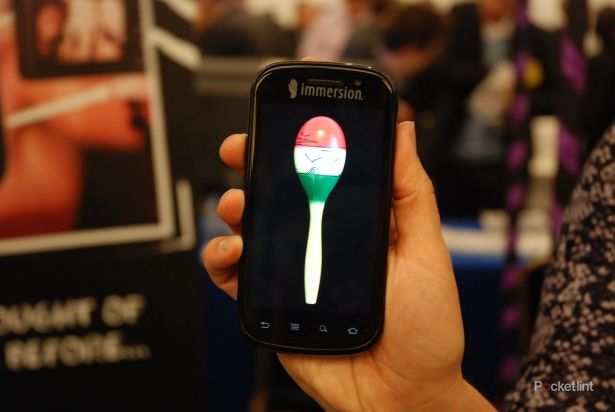A company by the name of Immersion has come up with a way of redefining your mobile phone and tablet touch experience. In what it's describing as HD Haptics, the company is able to give you a far more intense, controlled and precise vibration feedback from your device.
Why does this matter? Well, take a simple demonstration like the one Immersion gave Pocket-lint at Mobile World Congress - an Android phone with a maracas app on it. Shake the phone and the maracas shake too. All very fun for about 10 seconds. However, instead of just the usual general haptic buzz, Immersion has added its HD Integrator build tool to this phone and HD TouchSense software - something which mobile manufacturers will be able to do themselves if they sign up to this technology. Shake the maracas app now and you can feel every little bean inside, which direction they're flying in and how hard they hit when they do. It's frankly mesmerising.
Impressive but a limited use case. So, consider instead the idea of haptic feedback something more than allowing increased realism. What if it's another way of conveying a message to you; something analogue rather than just on/off information?

The example Immersion gave to us was that of flicking through some Facebook pictures. Photos, which have comments on them from your friends, give back vibrations and, indeed, the strength of those vibrations is an indication of just how many comments there are. Rather than load and reload comments streams, you can tell almost immediately if it's worth stopping to see what's been said. Again, it's not exactly crucial but the use case is up to the developer to create with an HD Haptics SDK ready to go.
The other side of the equation, of course, is down to the mobile manufactures not only to build the HD Integrator system into the phones themselves but also to make sure that there are the enough haptic feedback units to make the feeling as precise as it can be. From what we experienced in Barcelona, it's the stuff of the mobile future and part of a next generation of user-interface experiences that our usual one sense interactions with the virtual world could do with. It might not be in this wave of mobile phones but we hold a lot of hope for Mobile World Congress 2013.

